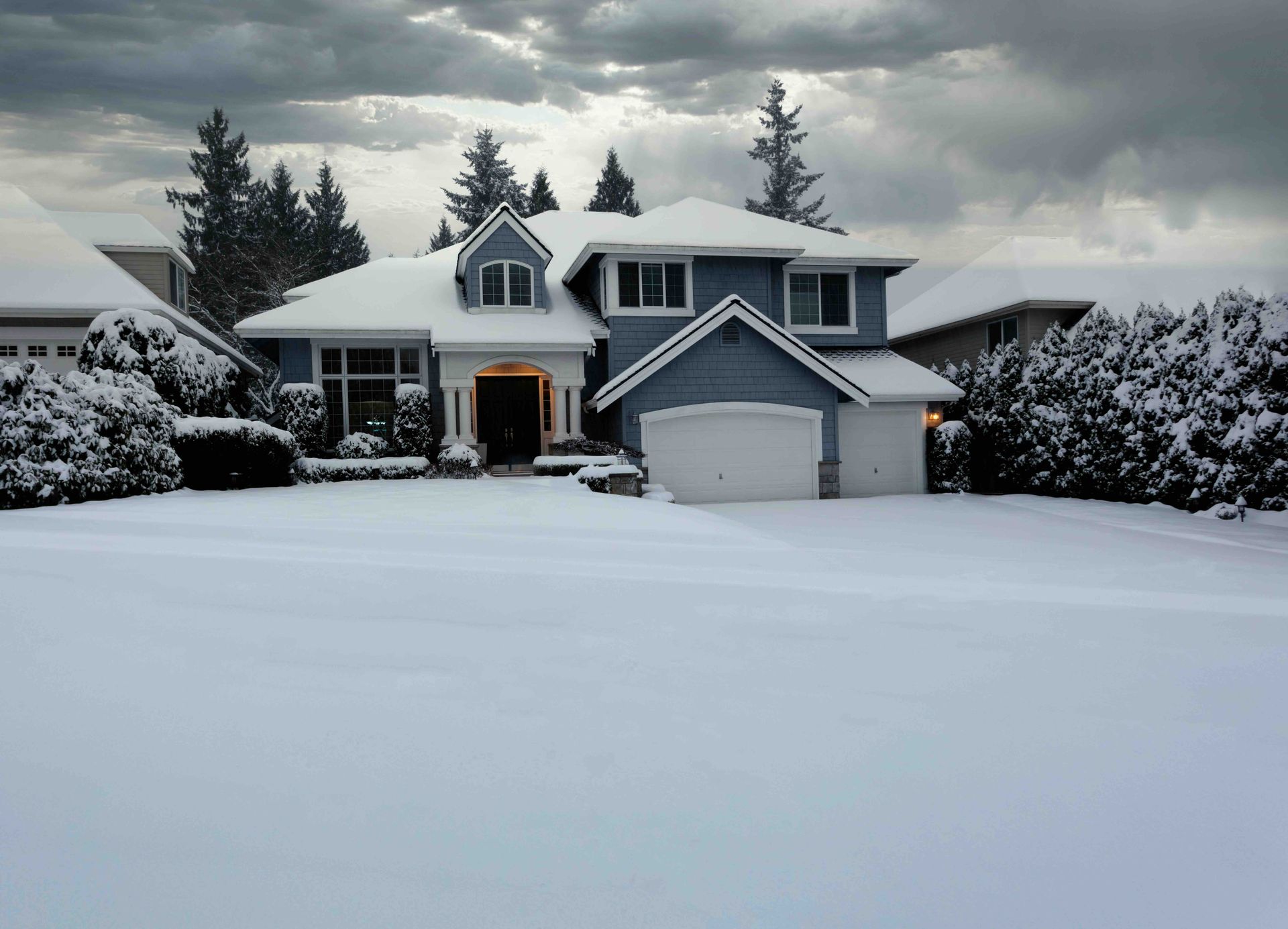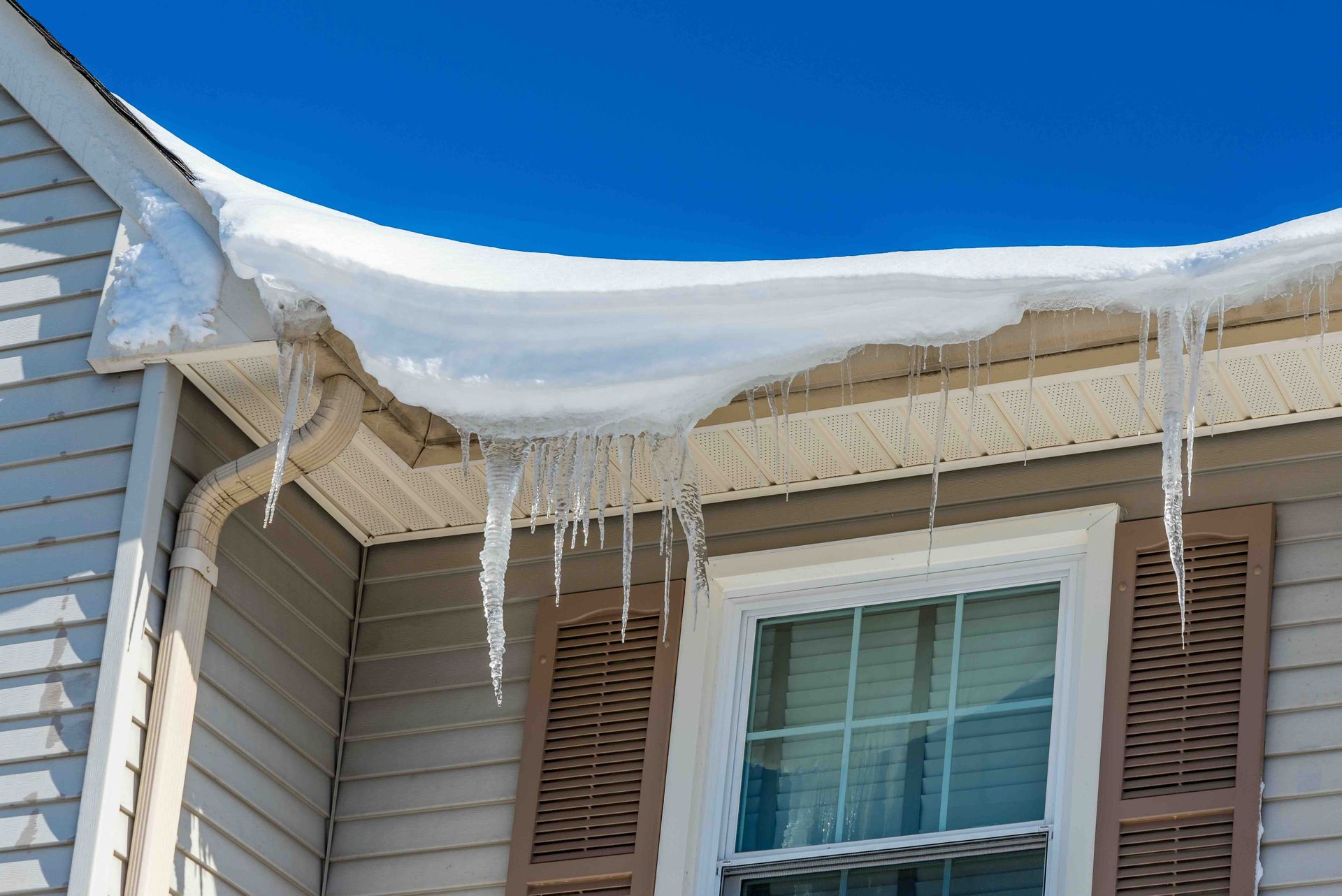Summer Home Maintenance Checklist for Grand Rapids Homeowners
As the warmer months approach, homeowners in Grand Rapids look forward to enjoying the beautiful Michigan summer. If you’re looking for a new home in Grand Rapids, be sure to check out our residential listings for Grand Rapids, MI.
However, before you settle into backyard barbecues and lakeside adventures, it's crucial to dedicate some time to essential home maintenance. A proactive approach to summer upkeep not only ensures your home remains comfortable and efficient but also helps prevent costly repairs down the line.
Grand Rapids' diverse climate, from humid summers to snowy winters, makes it necessary to prepare your home for the changing seasons. This is key to your Grand Rapids home’s longevity and most importantly, your peace of mind.
Real estate doesn’t have to be complicated. With Cornerstone Home Group, you get expert guidance and a dedication to "Serving All Your Real Estate Needs" every step of the way. Whether you’re looking to buy, sell, or invest, we’re here to help. Contact us today at
616.341.7231 or via
our website contact form to start the conversation!
Exterior & Yard Maintenance: Protecting Your Home's First Impression
Maintaining the exterior of your home and yard is vital for curb appeal and structural integrity. Summer brings its own set of challenges, including the potential for heavy rainfall and increased outdoor activity. Addressing these points now will protect your investment and enhance your enjoyment of your outdoor spaces.
Clean Gutters and Downspouts
Spring often leaves behind a significant amount of debris, including leaves, twigs, and even shingle grit, in your gutters and downspouts. Before the summer storms roll in, it's essential to thoroughly clean these channels. Clogged gutters can lead to water overflowing and pooling around your foundation, potentially causing basement flooding, foundation damage, or rot in fascia boards. Ensure all downspouts are clear and directing water at least several feet away from your home's foundation. This simple task can save you from major water-related issues.
Inspect and Clean Roof
Your roof is your home's primary shield against the elements. A pre-summer inspection is critical to identify any damage that might have occurred during the winter or spring. Look for missing, cracked, or curled shingles, which can indicate areas where water might penetrate. Also, check for any signs of pooling water, especially in low spots or around vents and chimneys. If you're comfortable and have the right safety equipment, you can gently sweep away loose debris. For significant damage or if you're unsure, it's always best to consult with a professional roofing contractor to ensure your roof is in optimal condition.
Pressure Wash Exterior Siding
Over the course of a year, your home's exterior siding can accumulate a surprising amount of dirt, grime, pollen, and even mildew. Pressure washing is an effective way to spruce up your home's appearance, making it look fresh and clean for the summer. Be mindful of the type of siding you have and adjust the pressure accordingly to avoid damage. Start with a lower pressure setting and increase it gradually. This task not only improves aesthetics but also helps prevent the buildup of substances that could potentially degrade your siding over time.
Pressure Wash Sidewalks, Porches, and Driveways
Just like your siding, hard surfaces around your home can become discolored and dirty. Sidewalks, porches, and driveways are constantly exposed to the elements, vehicle traffic, and foot traffic, leading to grime buildup, oil stains, and even moss or algae growth. Pressure washing these surfaces not only enhances your home's overall curb appeal but also makes them safer by removing slippery substances. It's a satisfying task that yields immediate visual results, making your outdoor living spaces more inviting.
Clean Window Screens
Window screens are essential for enjoying fresh air without inviting insects indoors. However, they can accumulate a significant amount of pollen, dust, and dirt throughout the year, especially during spring. This buildup can restrict airflow and obscure your view. Remove your screens and gently wash them with a soft brush and soapy water. Rinse them thoroughly and let them dry completely before reinstalling. Clean screens improve ventilation, allow more natural light into your home, and provide clearer views of your Grand Rapids surroundings.
Wash Windows (Inside and Out)
After a long winter and pollen-filled spring, your windows likely have their share of water spots, dust, and streaks. Washing windows inside and out will dramatically brighten your home and improve natural light. Use a good quality window cleaner and a microfiber cloth or squeegee for streak-free results. Pay attention to the sills and frames as well, wiping away any accumulated dirt. Clean windows not only enhance your home's appearance but also contribute to a more pleasant and inviting interior environment.
Inspect Deck/Patio for Damage
Your deck or patio is likely to be a central hub for summer activities. Before you start entertaining, give it a thorough inspection. Look for loose boards, protruding nails, or signs of rotting wood, especially in areas exposed to moisture. Check the stability of railings and stairs. Address any needed repairs promptly to ensure the safety of your family and guests. Loose boards can be resecured, and damaged wood may need to be replaced to prevent accidents and further deterioration.
Clean and Seal Deck/Patio
Once any repairs are made, cleaning and sealing your deck or patio is the next crucial step. Over time, wood surfaces can become discolored, covered in mildew, or splintered due to exposure to sun and rain. Use a deck cleaner to remove dirt and grime, then allow it to dry completely. Applying a quality wood sealant or stain will protect the wood from UV rays, moisture, and general wear, extending its lifespan and keeping it looking great for years to come. This also makes the surface easier to clean in the future.
Clean and Prep Your Grill
Summer is synonymous with grilling, and a clean grill is essential for safe and delicious cookouts. Before firing up your grill for the first time this season, give it a thorough cleaning. Remove old grease and food residue from the grates, burners, and interior. Check propane tank levels or ensure your natural gas line is in good working order. Clean the exterior of the grill as well. A well-maintained grill not only performs better but also reduces the risk of flare-ups and food contamination.
HVAC & Appliance Care: Ensuring Comfort and Efficiency
Your home's internal systems, particularly HVAC and major appliances, work harder during the summer. Proper maintenance ensures they run efficiently, saving you money on utility bills and preventing breakdowns when you need them most.
Service Your Air Conditioner
Before the peak summer heat arrives, it's highly recommended to have your air conditioning system professionally serviced. An HVAC technician can inspect the entire system, clean coils, check refrigerant levels, lubricate moving parts, and identify any potential issues before they become major problems. Regular professional servicing ensures your AC unit operates at peak efficiency, extends its lifespan, and helps prevent unexpected breakdowns during the hottest days, keeping your Grand Rapids home comfortably cool.
Change Air Conditioner Filter
This is one of the simplest yet most effective maintenance tasks you can perform for your AC unit. A dirty air filter restricts airflow, forcing your air conditioner to work harder and less efficiently, leading to higher energy bills and reduced cooling performance. It also compromises indoor air quality by allowing dust, pollen, and allergens to circulate. Replace your air conditioner filter regularly, typically monthly or every one to three months, depending on usage, pet ownership, and local air quality.
Clean Exterior Dryer Vent
A clogged dryer vent is not only a fire hazard but also significantly reduces your dryer's efficiency. Lint can accumulate in the vent hose and at the exterior vent opening, restricting airflow and causing your dryer to work harder and longer to dry clothes. Disconnect the dryer from the vent hose and thoroughly clean out any lint buildup from both the hose and the opening. Also, check the exterior vent flap to ensure it opens and closes properly. This simple cleaning can prevent fires and improve drying times.
Clean Range Hood Filter
Your range hood filter traps grease and smoke particles, preventing them from circulating throughout your kitchen. Over time, these filters can become saturated with grease and dust, reducing their effectiveness and potentially creating a fire hazard. Most range hood filters are removable and can be cleaned by soaking them in hot, soapy water or running them through a dishwasher. A clean filter ensures proper ventilation, removing cooking odors and maintaining good air quality in your kitchen.
Reverse Ceiling Fan Direction
Ceiling fans can be used year-round to improve comfort and energy efficiency. In the summer, you want your ceiling fans to create a downdraft, pushing cool air downwards. Most ceiling fans have a small switch on the motor housing that allows you to reverse the blade direction. For summer, ensure your fans are spinning counterclockwise. This creates a cooling breeze effect, allowing you to potentially raise your thermostat setting slightly and save on air conditioning costs without sacrificing comfort.
Clean Bathroom Exhaust Fans
Bathroom exhaust fans play a crucial role in removing moisture and odors, preventing mold and mildew growth. However, they can accumulate dust and lint on their grilles and internal components, reducing their effectiveness. Turn off the power to the fan at the circuit breaker before cleaning. Remove the cover and use a vacuum cleaner or a damp cloth to wipe away dust and grime from the fan blades and motor housing. A clean exhaust fan will efficiently remove humidity, keeping your bathroom fresh and dry.
Interior & Safety Checks: Maintaining a Healthy and Secure Living Space
Beyond the exterior and major systems, a few interior and safety checks are vital for a healthy and secure living environment throughout the summer.
Test Smoke Detectors and Carbon Monoxide Detectors
Safety devices are paramount. Test all smoke detectors and carbon monoxide detectors in your home to ensure they are working properly. Press the test button on each unit; you should hear a loud alarm. If any detector fails to alarm or if you haven't replaced the batteries in the last six months, do so immediately. It's a good practice to replace batteries annually, regardless of whether the test button works. These devices provide critical early warnings in case of fire or dangerous gas leaks.
Clean Faucet Aerators and Showerheads
Mineral deposits from hard water can accumulate in faucet aerators and showerheads, reducing water flow and causing erratic spray patterns. Unscrew faucet aerators and soak them in a solution of vinegar and water to dissolve mineral buildup. For showerheads, you can often remove them and soak them or tie a plastic bag filled with vinegar around the showerhead overnight. Cleaning these components improves water pressure, ensures an even flow, and extends the life of your plumbing fixtures.
Deep Clean Washing Machine
Washing machines, especially front-loaders, can develop mold, mildew, and odors due to residual moisture and detergent buildup. To deep clean your washing machine, run an empty hot water cycle with a cup or two of white vinegar and a half-cup of baking soda. For front-loaders, pay special attention to the rubber gasket around the door, wiping it thoroughly to remove any gunk or mold. Leave the door ajar after each load to allow the drum to air dry, preventing future odor issues.
Unclog and Clean Sink/Tub Drains
Slow-draining sinks and tubs are a common nuisance caused by the buildup of hair, soap scum, and other debris. Before they become complete clogs, address them. You can try pouring a mixture of baking soda and vinegar down the drain, followed by hot water, to break down minor blockages. For more stubborn clogs, a drain snake or a chemical drain cleaner (used cautiously and as directed) might be necessary. Regular cleaning of drains helps maintain proper water flow and prevents inconvenient backups.
Share on





